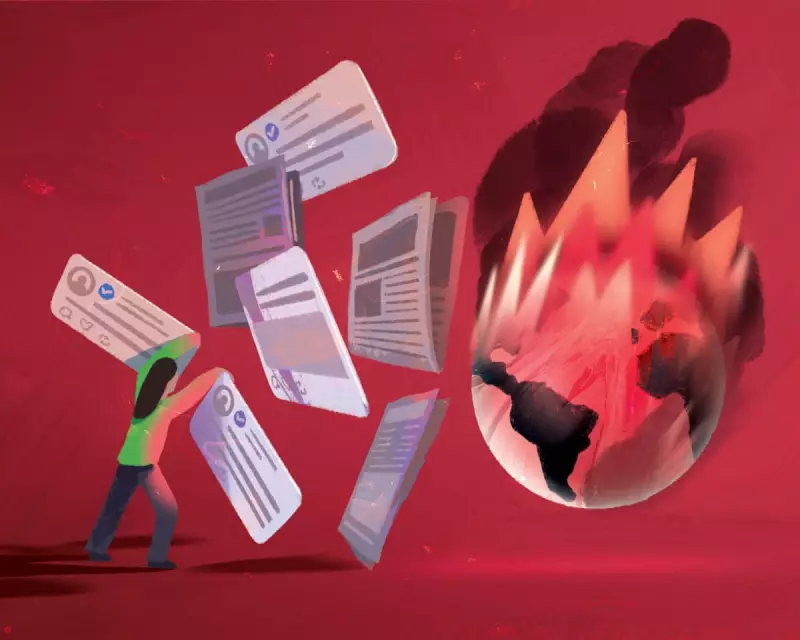
Renowned columnist George Monbiot has issued a stark warning that dark forces are deliberately sabotaging efforts to combat the climate crisis by taking public knowledge hostage. He argues that while the technological and financial solutions to environmental breakdown exist, a systematic assault on truth is preventing their implementation.
The Epistemic Crisis: A War on Knowledge
Monbiot identifies the core problem as an epistemic crisis – a fundamental breakdown in how society produces and shares knowledge. This crisis of what we know and how we know it runs parallel to the environmental emergency, crippling our ability to respond effectively.
He contends there was never a golden age of pure public knowledge, pointing to historical European consensus around falsehoods like imperial benevolence and racial inferiority. Public knowledge is always shaped by power, and today's democratic promise of social progress through shared understanding is being systematically dismantled.
Billionaire Media Control and Systematic Disinformation
The fundamental mechanism enabling this crisis, Monbiot explains, is that most communication channels are owned or influenced by the ultra-rich. He describes propaganda as capital's solution to the "problem" of democracy, with media platforms used to boost claims that defend wealth and power while suppressing challenges to the status quo.
This manifests in several alarming developments:
- Legacy media acquisition by Trump allies in the US, promising more extreme attacks on capital's critics
- Massive funding for new media, including $8 million from fracking billionaires to PragerU and $4.7 million to The Daily Wire
- Climate denial dominance in online shows, with eight of the world's ten most popular programs spreading climate science misinformation
- Algorithmic bias on X (formerly Twitter) that systematically feeds users rightwing content, according to a Sky News investigation
Monbiot notes that radical right politicians spread misinformation most frequently, particularly climate denial, explaining why fossil fuel companies sponsor these movements.
Complicit Institutions and the BBC's Failures
The problem extends beyond billionaire-owned media to supposedly neutral institutions. Monbiot highlights Peter Coviello's experience with the New York Times, which equated expert opinion with commentary from paid lobbyists without examining their relative authority or sponsorship.
He reserves particular criticism for the BBC, accusing it of:
- Hosting Tufton Street "junktanks" that argue against environmental action without revealing fossil fuel funding
- Forbidding presenter Evan Davis from making a podcast about heat pumps, deeming the technology "controversial" after gas industry lobbying
- Discussing plans to alter output to appeal to Reform voters
- Consistently misrepresenting leftwing figures without consequence
The appeasement of the right never ends, and nor will it ever be satisfied, Monbiot concludes.
Political Consequences and the Path Forward
This manufactured media environment has direct political consequences. An International Panel on the Information Environment review found that inaccurate climate narratives create a feedback loop between denialism and political inaction.
The effects are visible at current climate talks, where Cop30 president André Corrêa do Lago notes a reduction in enthusiasm among rich nations.
Monbiot emphasizes this situation is no accident but rather a deliberate and systematic assault on knowledge by some of Earth's richest people. Preventing climate breakdown, he argues, requires protecting society from this storm of lies and demanding transparency about who shapes public discourse.





